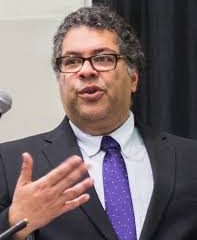Sylvester Turner: Houston’s Resilient Mayor

Introduction
Sylvester Turner has served as the mayor of Houston since 2016 and has become a pivotal figure in managing the city’s growth and responding to crises. His leadership has been particularly crucial in the face of challenges brought on by natural disasters, public health emergencies, and the ongoing socio-economic struggles facing urban communities. Understanding Turner’s role and decisions can help citizens grasp the direction in which Houston is heading, especially as the city faces new post-pandemic realities.
Key Initiatives and Recent Challenges
In recent months, Sylvester Turner has been at the forefront of several initiatives aimed at revitalizing Houston’s economy, addressing housing insecurity, and enhancing public safety. Houston, being the fourth largest city in the United States, continues to grapple with the repercussions of the COVID-19 pandemic, including increased demand for affordable housing and mental health services.
One of Turner’s significant achievements includes the ‘Complete Communities’ initiative, which focuses on improving neighborhoods that have historically faced challenges in accessing resources and opportunities. This program aims to enhance public spaces, provide better access to local services, and foster community engagement. Turner has emphasized inclusivity and equity in urban planning, ensuring that marginalized communities receive the support they need.
Most recently, the city has faced the aftermath of severe weather events, including hurricanes and flooding. Turner has coordinated relief efforts and mobilized resources efficiently to assist affected residents, showcasing his commitment to Houston’s resilience. He also advocated for improvements in infrastructure to better prepare the city for future climate challenges, a necessity as climate change increasingly impacts urban areas.
Turner’s Leadership Style and Public Reception
Turner’s leadership style is often described as collaborative and community-focused. He regularly holds town hall meetings to engage directly with residents, welcoming input and fostering dialogue. However, like all leaders, he has faced criticism, particularly concerning police funding and management of public safety. Recent calls for police reform and community-led safety initiatives have tested his administration’s response and adaptability.
Conclusion
Sylvester Turner continues to navigate the complexities of leading one of America’s largest cities through a time of transformation and uncertainty. His focus on equity, community engagement, and crisis management reflects an understanding of the multifaceted challenges facing urban centers today. As Houston moves forward, residents will be watching closely to see how Turner addresses emerging issues, including economic recovery and climate resilience, that will undoubtedly shape the city for years to come. Turner’s leadership may well set a precedent for how urban leaders confront future challenges in a rapidly evolving world.





